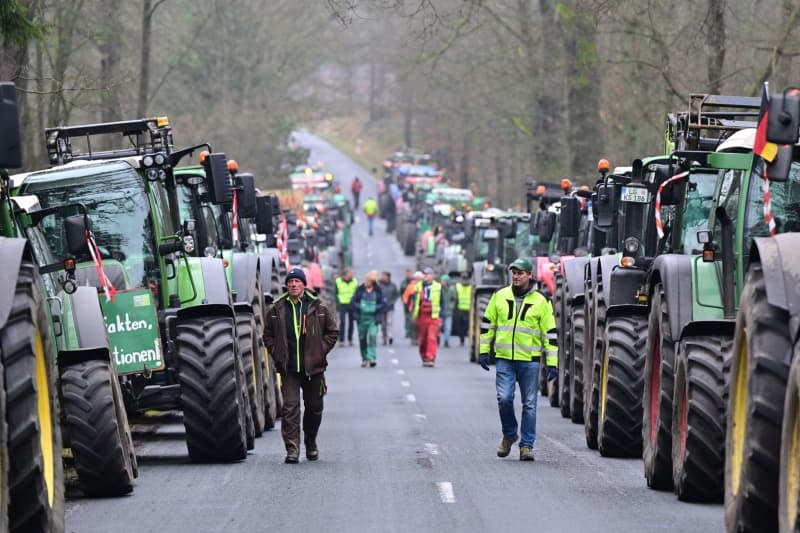European Commission loosens fallow land rules for protesting farmers

EU farmers are to get more flexibility around fallow land requirements to access public agricultural subsidies, the European Commission announced on Tuesday.
Farmers growing crops like peas, fava beans and lentils, and other nitrogen fixing crops on 4% of their arable land will be considered eligible to receive Common Agricultural Policy (CAP) funding.
Payments from the CAP, the European Union's flagship agricultural subsidy scheme, will also be available to farmers growing crops without pesticides on 4% of their arable land.
An initial proposal envisaged a 7%-of-arable-land requirement but this was loosened further after consultations with EU member states to help farmers more, a European Commission spokesman said on Tuesday.
Changes to fallow land rules for subsidy access are the latest overture from the commission to placate EU farmers who have demonstrated vocally in recent weeks against what they view as burdensome EU environmental regulations and falling incomes.
European Commission President Ursula von der Leyen said the move offers "flexibility to farmers while continuing to reward them for their crucial work to drive EU food security and sustainability."
"We will soon come forward with more proposals to help alleviate the pressure our farmers face," she added in a statement.
The regulations enter into force on Wednesday, but apply retroactively from January 1 until December 31.

